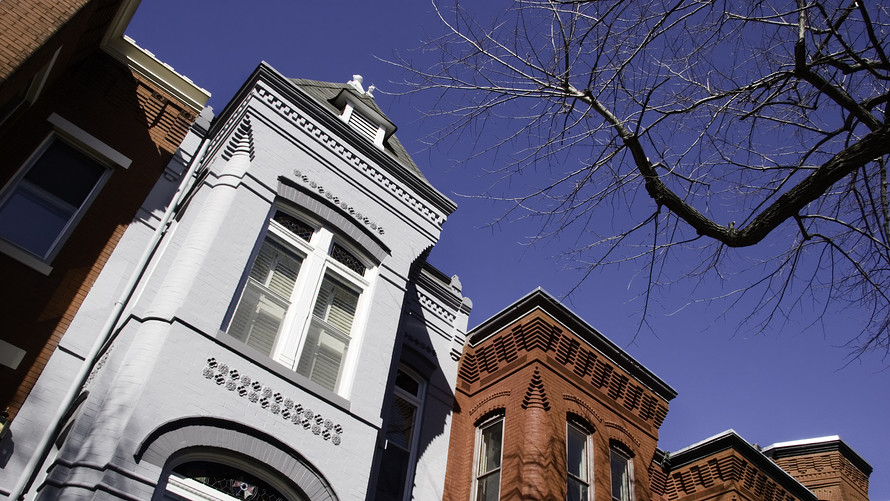
It’s getting tough to afford a place to live — but residents of the nation’s capital are better placed than their peers in other cities.
People in Washington, D.C., have the most money left over in their bank account after paying their mortgage each month, according to a new report from Zillow ZG, -0.84% which analyzed the 35 largest housing markets across the U.S.
- Based on the median annual gross income and mortgage payment, homeowners in Washington have roughly $7,000, or 19.3% of their monthly income, left over after making housing payments.
- On the other end of the spectrum, residents of Los Angeles have the smallest amount of money left after paying for the median mortgage ($3,450). That’s before factoring in California’s income-tax rates.
- Florida cities — Miami, Tampa and Orlando — also ranked among the least affordable places to live based on the amount of take-home pay that must be devoted to the mortgage.
| Metropolitan area | Leftover income after paying mortgage (annual) | Leftover income after paying rent (annual) | Share of income spent on mortgage payments | Share of income spent on rent |
| United States | $52,231 | $45,781 | 17.50% | 27.70% |
| New York, N.Y. | $57,749 | $50,474 | 27.20% | 36.40% |
| Los Angeles-Long Beach-Anaheim, Calif. | $41,426 | $39,926 | 43.70% | 45.70% |
| Chicago, Ill. | $60,395 | $51,417 | 15.50% | 28.10% |
| Dallas-Fort Worth, Texas | $58,484 | $50,849 | 16.90% | 27.70% |
| Philadelphia, Pa. | $60,116 | $52,461 | 16.00% | 26.70% |
| Houston, Texas | $55,963 | $47,200 | 15.30% | 28.60% |
| Washington, D.C. | $83,642 | $77,738 | 19.30% | 25.00% |
| Miami-Fort Lauderdale, Fla. | $42,533 | $33,783 | 24.70% | 40.20% |
| Atlanta, Ga. | $57,289 | $50,886 | 15.70% | 25.20% |
| Boston, Mass. | $67,165 | $61,467 | 25.40% | 31.80% |
| San Francisco, Calif. | $60,039 | $66,423 | 44.20% | 38.30% |
| Detroit, Mich. | $53,114 | $46,379 | 12.90% | 24.00% |
| Riverside, Calif. | $47,244 | $41,899 | 27.70% | 35.80% |
| Phoenix, Ariz. | $51,643 | $47,725 | 20.10% | 26.20% |
| Seattle, Wash. | $61,931 | $59,523 | 28.10% | 30.90% |
| Minneapolis-St Paul, Minn. | $66,794 | $59,810 | 16.50% | 25.20% |
| San Diego, Calif. | $51,259 | $49,293 | 36.40% | 38.80% |
| St. Louis, Mo. | $56,030 | $50,475 | 12.80% | 21.50% |
| Tampa, Fla. | $43,549 | $37,072 | 19.50% | 31.40% |
| Baltimore, Md. | $66,463 | $58,730 | 16.60% | 26.30% |
| Denver, Colo. | $60,569 | $55,445 | 24.80% | 31.10% |
| Pittsburgh, Pa. | $54,214 | $48,172 | 11.60% | 21.40% |
| Portland, Ore. | $56,286 | $53,567 | 25.80% | 29.40% |
| Charlotte, N.C. | $53,545 | $47,810 | 15.90% | 24.90% |
| Sacramento, Calif. | $50,872 | $48,370 | 28.30% | 31.90% |
| San Antonio, Texas | $49,100 | $42,372 | 16.20% | 27.70% |
| Orlando, Fla. | $45,543 | $39,225 | 20.30% | 31.40% |
| Cincinnati, Ohio | $56,022 | $48,762 | 12.90% | 24.20% |
| Cleveland, Ohio | $47,058 | $40,379 | 13.20% | 25.50% |
| Kansas City, Mo. | $56,475 | $50,462 | 14.30% | 23.40% |
| Las Vegas, Nev. | $46,338 | $43,788 | 22.90% | 27.10% |
| Columbus, Ohio | $57,453 | $50,568 | 14.00% | 24.30% |
| Indianapolis, Ind. | $53,919 | $47,300 | 13.00% | 23.70% |
| San Jose, Calif. | $62,335 | $81,880 | 49.90% | 34.10% |
| Austin, Texas | $61,660 | $56,491 | 19.70% | 26.50% |
The situation for residents of these more unaffordable cities points to a conundrum: Job satisfaction may come with a hefty housing bill.
In most of the country’s largest housing markets, mortgage payments take out a bigger chunk of people’s income than the national average of 17.5%, meaning that people are paying a premium to live (and work) in these areas.
“A good-paying job with career growth potential often comes with expensive housing, leaving less for life’s other essentials such as taxes, child care, transportation, medical services, food and leisure,” Skylar Olsen, Zillow’s director of economic research, said in the report.
“Finding that balance where housing costs leave a comfortable amount of spending money is tricky, especially when the prices of life’s non-housing essentials also vary widely by market,” she said.
Housing affordability worsened last year due to a combination of rising mortgage rates and increasing home prices. So far this year, mortgage rates have dropped, and home price appreciation has cooled somewhat, signaling that matters could be improving for would-be homeowners.
Moreover, while affordability has worsened in recent years, homeowners today are still devoting less of their income to housing payments than they had to back in the 1980s and 1990s.
Renters, meanwhile, are doling out a larger chunk of their income toward housing (27.7%) than their peers who own their homes. Renters in San Jose, Calif., had the most money left over after paying the rent, followed by Washington.






















